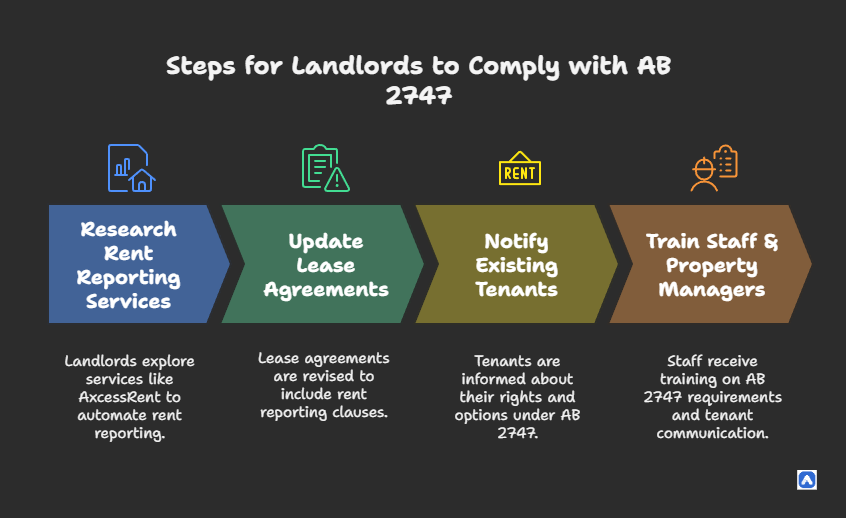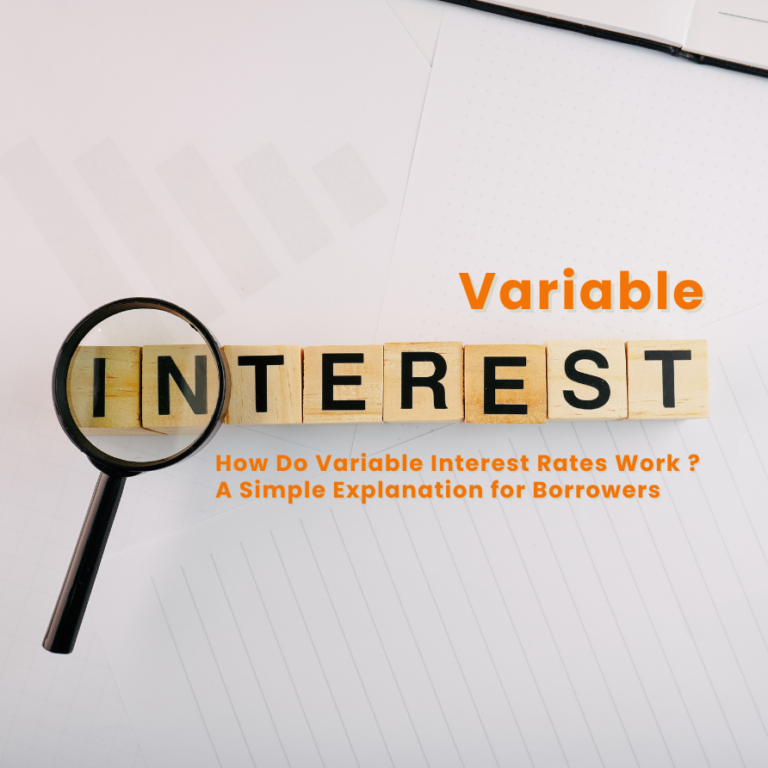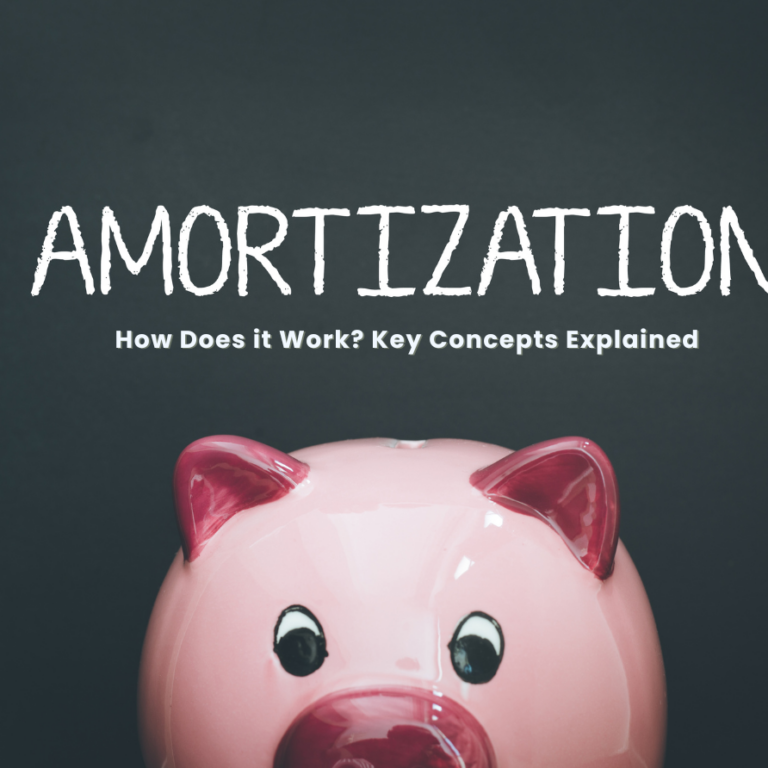AB 2747 California: Empowering Landlords to Maximize Tenant Success
Introduction: The Game-Changing AB 2747 California
Starting April 1, 2025 , California landlords with 15 or more residential rental units will be required to comply with AB 2747 , a groundbreaking law that mandates rent payment reporting to major credit bureaus. This legislation gives tenants an opportunity to build credit simply by paying rent on time—a significant step toward financial inclusion. However, it also introduces new responsibilities for property owners, including administrative tasks, potential costs, and compliance risks.
In this comprehensive guide, we’ll explore:
By understanding these changes now, you can prepare your business for smooth operations under California AB 2747 and avoid costly penalties.
What Does AB 2747 Require?
Key Provisions of the Law
Tenant Notification
Under AB 2747 , landlords must inform tenants about rent reporting at two key points:
- At lease signing
- At least once annually thereafter
This ensures tenants are aware of their rights and options under the law.
Mandatory Reporting (If Tenant Opts In)
If a tenant chooses to participate, landlords must report both on-time and late rent payments to at least one major credit bureau: Experian , Equifax , or TransUnion .
Permitted Fees
Landlords can charge a fee for rent reporting, but it is capped at $10/month or the actual cost of reporting—whichever is lower. This fee ensures that landlords aren’t burdened with excessive costs while still allowing them to recover expenses.
Opt-Out Rules
Tenants have the right to opt out of rent reporting at any time. However, if they choose to do so, they must wait six months before opting back in. This rule prevents frequent toggling between participation and non-participation.
👉 Sign Up for AxcessRent Today and take the first step toward hassle-free rent reporting under AB 2747 California !
Why Should Landlords Care About AB 2747?
AB 2747 California introduces significant changes that directly impact landlords, making it essential to understand who must comply and why it matters. The law applies specifically to:
- Landlords with 15+ residential rental units in California AB 2747 : If you own or manage properties with 15 or more units, compliance is mandatory. This means you’ll need to implement systems for reporting rent payments to credit bureaus if tenants opt in.
- Property management companies overseeing qualifying properties : Property managers are equally responsible for ensuring compliance on behalf of the landlords they represent.
On the other hand, smaller landlords with fewer than 15 units are exempt from mandatory reporting under California AB 2747 . However, even if you’re not required to comply, offering rent reporting as an optional service can be a powerful tenant perk. It helps attract financially responsible renters, encourages timely payments, and strengthens tenant relationships—all while positioning you as a forward-thinking landlord.
How Will AB 2747 Impact Landlords?
New Administrative Responsibilities
Tracking & Reporting Payments
Landlords must implement a system to accurately track and report rent payments to credit bureaus. This includes:
- On-time payments
- Late payments (which could negatively impact a tenant’s credit score)
Late payment reporting may lead to disputes, so landlords should ensure their records are meticulous and verifiable.
Lease Agreement Updates
New leases must include a disclosure clause about rent reporting. Existing tenants must receive annual reminders about their rights and options.
Tenant Inquiries & Disputes
Landlords should prepare to address tenant questions and resolve disputes over credit reporting errors. For example:
- “Will late payments hurt my credit?”
- “How do I opt out of rent reporting?”
Having clear answers and documentation will help prevent misunderstandings and potential legal issues.
Potential Costs & Fees
Reporting Service Fees
Many landlords will likely use third-party services like AxcessRent to automate rent reporting. While these tools simplify compliance, they come with associated costs. Landlords can pass some of these fees to tenants, capped at $10/month under AB 2747 California .
Compliance Risks
Failure to comply with California AB 2747 could result in legal penalties, tenant lawsuits, or damage to your reputation. Staying informed and proactive is essential to avoid these risks.
Why Was AB 2747 Created?
Background & Legislative Intent
AB 2747 builds on SB 1157 (2022) , which required rent reporting for affordable housing tenants. Lawmakers recognized that rent is often the largest monthly expense for many Californians, yet it rarely helps build credit. The goal of AB 2747 California is to:
✔ Help renters establish credit history
✔ Improve access to loans, mortgages, and future rentals
✔ Encourage on-time payments (benefiting landlords)
Expected Benefits for Tenants
- Higher credit scores : Consistent on-time payments can significantly boost credit scores.
- Easier loan approvals : Better credit opens doors to mortgages, car loans, and credit cards.
- More rental opportunities : Improved credit scores make tenants more attractive to future landlords.
For landlords, the law incentivizes timely payments, reduces turnover, and fosters stronger tenant relationships.
Empower your tenants to build credit effortlessly—partner with AxcessRent and comply with AB 2747 California while fostering stronger tenant relationships. Get Started Now!
What Should Landlords Do Now?

Step 1: Research Rent Reporting Services
To comply with AB 2747 California, landlords should explore third-party services that automate rent reporting. One of the best options is:
AxcessRent – A trusted rent reporting service that helps landlords ensure compliance while enabling tenants to build credit. AxcessRent reports on-time rent payments to major credit bureaus, improving financial stability for both landlords and renters.
Make sure the service you choose aligns with your budget and reports to at least one major credit bureau.
Step 2: Update Lease Agreements
Revise your lease agreements to include a disclosure clause about rent reporting. Key details to include:
- Tenant’s right to opt in/out
- Associated fees (if any)
- How payments will be reported
For existing tenants, send an official notice explaining the new rent reporting option and provide a clear opt-in process (written or digital form).
Step 3: Notify Existing Tenants
Send a formal notification to current tenants about AB 2747 California and their right to participate in rent reporting. Include:
- A summary of the law
- Instructions for opting in
- Contact information for questions
Step 4: Train Staff & Property Managers
Educate your team on the requirements of California AB 2747 and how to explain the program to tenants. Prepare for common questions, such as:
- “Will late payments hurt my credit?”
- “How do I opt out?”
- “What happens if I dispute a reported payment?”
Clear communication will build trust and minimize confusion.
Challenges of California AB 2747: What Landlords Need to Prepare For
While California AB 2747 offers significant benefits, it also introduces new challenges that landlords must address to ensure compliance. Adapting to these changes requires careful planning and resource allocation. Below are the key challenges landlords may face:
- Increased Administrative Workload : Landlords must implement systems to accurately track and report rent payments to credit bureaus, adding to their daily responsibilities.
- Potential Costs of Implementation : Setting up rent reporting systems, whether through third-party services or internal processes, may involve upfront costs.
- Risk of Tenant Disputes : Reporting late payments to credit bureaus could lead to disputes with tenants, requiring landlords to maintain meticulous records and resolve issues promptly.
These challenges highlight the importance of preparation under California AB 2747 , ensuring landlords can meet their obligations while minimizing disruptions to their operations.
Opportunities of California AB 2747: A Win-Win for Landlords and Tenants
Despite the challenges, California AB 2747 presents exciting opportunities for landlords to enhance their rental business and foster stronger tenant relationships. By embracing this law, landlords can position themselves as leaders in tenant empowerment and financial inclusion. Here’s how:
- Improved Tenant Payment Behavior : With rent payments tied to credit scores, tenants are more likely to pay on time, benefiting landlords financially.
- Stronger Tenant Retention and Satisfaction : Offering rent reporting as a value-added service can attract and retain reliable, credit-conscious tenants.
- Enhanced Reputation as a Forward-Thinking Landlord : Compliance with California AB 2747 demonstrates a commitment to supporting tenants’ financial well-being, enhancing your reputation in the rental market.
By leveraging these opportunities, landlords can not only comply with California AB 2747 but also create a more sustainable and mutually beneficial rental ecosystem.
Property managers/Landlords, streamline your operations under AB 2747 California with AxcessRent’s all-in-one rent reporting solution. Save time, reduce risks, and enhance tenant satisfaction. Sign Up Now!
Conclusion: Prepare Now for April 2025
AB 2747 California represents a major shift in rental laws, designed to promote financial transparency and credit-building for tenants. While this law provides renters with an opportunity to improve their credit scores through on-time rent payments, it also places new responsibilities on landlords. By proactively setting up rent reporting systems, updating lease agreements, and keeping tenants informed, landlords can ensure compliance while fostering better tenant relationships and reducing late payments.
Next Steps for Landlords:
Stay Ahead of Compliance Changes
As April 2025 approaches, landlords who take action now will be in the best position to comply with AB 2747 California while improving tenant satisfaction and reducing financial risks. By integrating rent reporting services into your management process and keeping your tenants informed, you can turn compliance into a strategic advantage. help you avoid penalties and maintain smooth operations under AB 2747 .
For more information, consult legal experts or visit the official California AB 2747 resources to ensure your business is fully prepared for this landmark legislation.
FAQs
What is AB 2747 California new Law for Landlords?
AB 2747 California is a new law requiring landlords with 15 or more residential rental units to report tenant rent payments to major credit bureaus if the tenant opts in. Starting April 1, 2025, this law aims to help tenants build credit by paying rent on time while introducing new responsibilities for landlords.
Who must comply with AB 2747 California?
The law applies to landlords with 15+ residential rental units in California AB 2747 . Property management companies managing qualifying properties. Smaller landlords with fewer than 15 units are exempt from mandatory reporting but can still offer it as an optional service.
Can landlords charge tenants for rent reporting under AB 2747 California?
Yes, landlords can charge a fee for rent reporting under AB 2747 California , actual cost of reporting from AxcessRent—whichever is lower. This ensures tenants aren’t overburdened while allowing landlords to recover expenses.
What happens if a tenant disputes a late payment reported under AB 2747 California?
If a tenant disputes a late payment reported under California AB 2747 , landlords must verify their records and correct any errors with the credit bureau. Maintaining accurate and detailed payment records is crucial to resolving disputes quickly and avoiding legal issues.
Does AB 2747 California apply to short-term rentals like Airbnb?
No, AB 2747 California only applies to residential leases. Short-term or vacation rentals, such as those listed on platforms like Airbnb, are exempt from the law.
Can tenants opt out of rent reporting under AB 2747 California?
Yes, tenants have the right to opt out of rent reporting under California AB 2747 at any time. However, if they choose to opt out, they must wait six months before opting back in. This rule prevents frequent toggling between participation and non-participation.
What are the penalties for non-compliance with AB 2747 California?
Failure to comply with AB 2747 California could result in legal penalties, tenant lawsuits, or reputational damage. Landlords who own 15+ units must ensure they meet all requirements by the April 1, 2025, deadline to avoid these risks.
How can landlords prepare for AB 2747 California?
Landlords can prepare for California AB 2747 by:
- Researching third-party rent reporting services like RentTrack, PayYourRent, or Esusu.
- Updating lease agreements to include rent reporting disclosures.
- Notifying current tenants about their rights and options under the law.
- Training staff to handle tenant questions and disputes related to credit reporting.
Why was AB 2747 California created?
AB 2747 California was created to promote financial inclusion by helping renters build credit through on-time rent payments. Lawmakers recognized that rent is often the largest monthly expense for many Californians, yet it rarely contributes to credit scores. The law aims to:
- Help tenants establish credit history.
- Improve access to loans, mortgages, and future rentals.
- Encourage timely rent payments, benefiting landlords.
What are the benefits of AB 2747 California for landlords?
While AB 2747 California introduces new responsibilities, it also offers benefits for landlords, including:
- Improved tenant payment behavior due to credit incentives.
- Stronger tenant retention and satisfaction.
- Enhanced reputation as a forward-thinking landlord committed to tenant empowerment.






